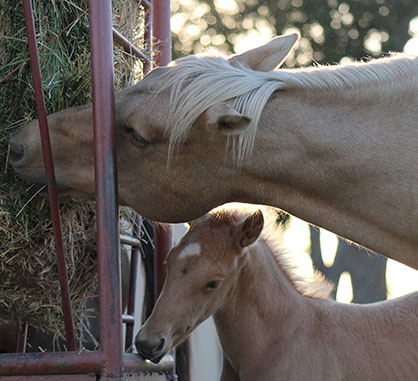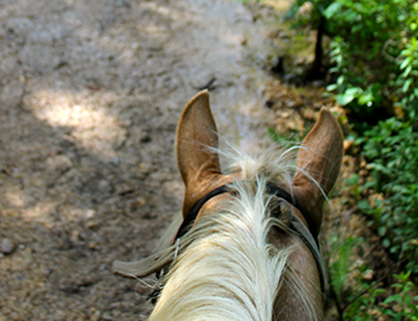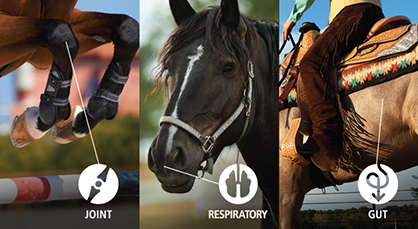SNAKE! Tips to Help Keep Your Horses and Pets Safe
September 23, 2014 Comments Off on SNAKE! Tips to Help Keep Your Horses and Pets Safe
“Horses, sheep and cattle are also susceptible to snake venom. Signs include muscle tremor, labored breathing and dilated pupils followed by paralysis.”
Continue reading …Tips For Transitioning to Hay and Avoiding the Dreaded “Winter Colic”
September 19, 2014 Comments Off on Tips For Transitioning to Hay and Avoiding the Dreaded “Winter Colic”
With increased hay consumption, impactions and excess gas production are the most common causes. Enteroliths (stones) are often seen in high alfalfa hay diets.
Continue reading …September is Senior Pet Wellness Month- 1 Human Year = 7 Pet Years
September 18, 2014 Comments Off on September is Senior Pet Wellness Month- 1 Human Year = 7 Pet Years
“Pets age at a much faster rate than humans. For every one human year, a pet ages seven,” says Dr. Mitsie Vargas a veterinarian based in Winter Haven, Florida.
Continue reading …NY Horse Owners Encouraged to Vaccinate For EEE and WNV
September 16, 2014 Comments Off on NY Horse Owners Encouraged to Vaccinate For EEE and WNV
In 2014, New York has already seen six cases of EEE found in horses in Madison, Wayne, Oneida and Oswego counties.
Continue reading …Interesting Study Shows Equine Vets Have Highest Injury Risk of All Civilian Professions in UK
September 11, 2014 Comments Off on Interesting Study Shows Equine Vets Have Highest Injury Risk of All Civilian Professions in UK
Most were described as bruising, fracture and laceration, with the most common site of injury being the leg (29%), followed by the head (23%). The main cause of injury was a kick with a hind limb (49%), followed by strike with a fore limb (11%), followed by crush injury (5%).
Continue reading …Lyme Disease is Not Only a Threat to Humans but Animals as Well
September 10, 2014 Comments Off on Lyme Disease is Not Only a Threat to Humans but Animals as Well
Did you know that symptoms of infection in horses can include lameness, arthritis, fever, edema, eye inflammation, joint swelling, and encephalitis?
Continue reading …Texas A&M Study Shows LIFELINE Bioactive Proteins Beneficial to Equine Joint Function
September 9, 2014 Comments Off on Texas A&M Study Shows LIFELINE Bioactive Proteins Beneficial to Equine Joint Function
In the 28-day double-blind study, 30 mature Quarter horses ranging in age from 5 to 22 years and weighing 968 to 1,508 pounds were blocked by age and body weight and randomly assigned to treatment.
Continue reading …Dr. Rose Nolen-Walston to Discuss Deworming Horses Tonight During Free Lecture at Penn Vet’s New Bolton Center
September 9, 2014 Comments Off on Dr. Rose Nolen-Walston to Discuss Deworming Horses Tonight During Free Lecture at Penn Vet’s New Bolton Center
Dr. Nolen-Walston is reprising her popular presentation, “Global Worming: How to Prevent Deworming Meltdown in the 21st Century.” She will discuss new thoughts on equine deworming, highlighting the emerging dangers of resistance that may make treatments ineffective in the future.
Continue reading …Is Your Horse Suffering From “Monday Morning Sickness”?
September 8, 2014 Comments Off on Is Your Horse Suffering From “Monday Morning Sickness”?
Typical signs of tying up include a stiff walk that, at its worse, can immobilize the horse, signs of hard painful muscles in the rear, and occasionally sweating, if the pain is severe enough.
Continue reading …Are Rabies Vaccines Really Necessary For Your Pet?
September 5, 2014 Comments Off on Are Rabies Vaccines Really Necessary For Your Pet?
Worldwide, more than 55,000 people die of rabies every year and nearly 40% of those who are bitten by rabid animals are children under 15 years of age. The good news is that the vaccine is 100% effective.
Continue reading …







